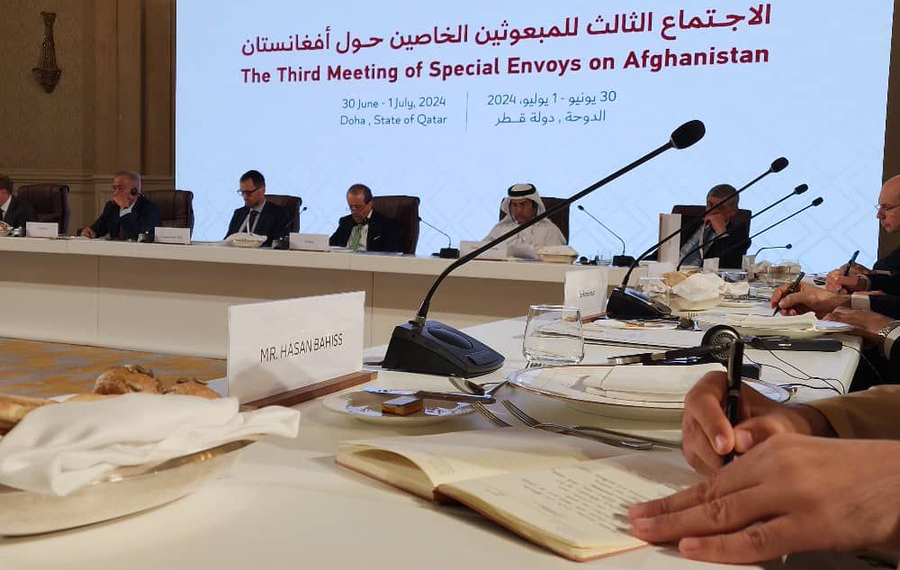The Taliban has called on the international community gathered in Qatar on Sunday to look past its crackdown on women’s rights in Afghanistan as a simple matter of “policy differences” and to separate “internal matters” from foreign relations.
The group’s spokesperson Zabiullah Mujahid addressed international delegates from around 25 countries on the opening day of the third such UN-backed meeting on Afghanistan.
The UN Secretary General Antonia Guterres’ decision to honor the Taliban’s request to not allow civil society groups including Afghan women’s representatives at the meeting had been heavily criticised by people within the UN and the international community.
Mr Mujuhid acknowledged criticism of the Taliban’s severe restriction of women’s education, work, freedom of movement and access to justice in his speech. But he dismissed them as not being as important as the way the international community is sanctioning and controlling funds to Afghanistan.
“The policy differences should not escalate to the extent that powerful countries use their leverage to impose security, political, and economic pressures on our people, affecting the lives of our nation in a significant way,” Mr Mujahid said.
The criticism of the meeting continued even as it got under way, including with a declaration from the Canadian delegation.
“Canada is extremely disappointed that the UN organizers have excluded non-Taliban Afghan participants, including women’s advocates, religious and ethnic minorities, and human rights groups from participating in the meeting’s main sessions,” Global Affairs Canada said in a statement.
It said it had been arguing for weeks both privately and alongside other governments for the UN to include civil society groups at the meeting.
“The full, equal and meaningful participation of Afghan women in the Doha meeting process is not only a core tenet of the Women, Peace and Security agenda, but fundamental to the achievement of a peaceful, stable and inclusive Afghanistan. None of the goals that Afghans are seeking to achieve are possible without the full participation of women,” the statement said.
The statement was in line with previous exhortations from other countries and groups, but despite these demands not being met, no one boycotted the meeting.
Canada said it would use its presence at the meeting “to amplify the messages of those who have courageously spoken out about the human rights abuses committed by the Taliban, but have not been invited to the main meetings.”
No country has officially recognized the Taliban as the legitimate government of Afghanistan but there has been growing bilateral engagement with the Taliban from a number of countries.
Prior to the start of formal talks in Doha on Sunday, Voice of America reported the Taliban held separate meetings with delegates from Russia, Saudi Arabia, India and Uzbekistan.
Mr Mujahid also posted on the platform X that he had held talks with Indonesia, Norway and Kazakhstan.
The second and final day of the UN meeting in Doha today (July 1) is expected to discuss how to prevent the proliferation of illicit drugs and cooperation on Afghanistan’s private sector.








